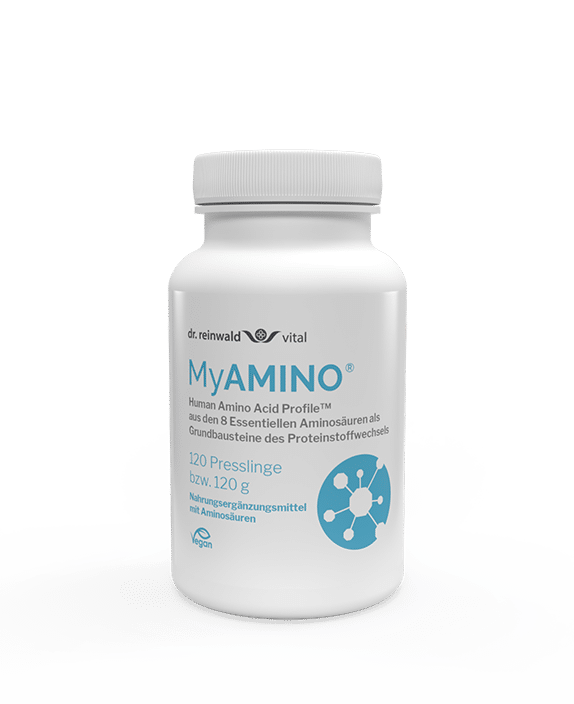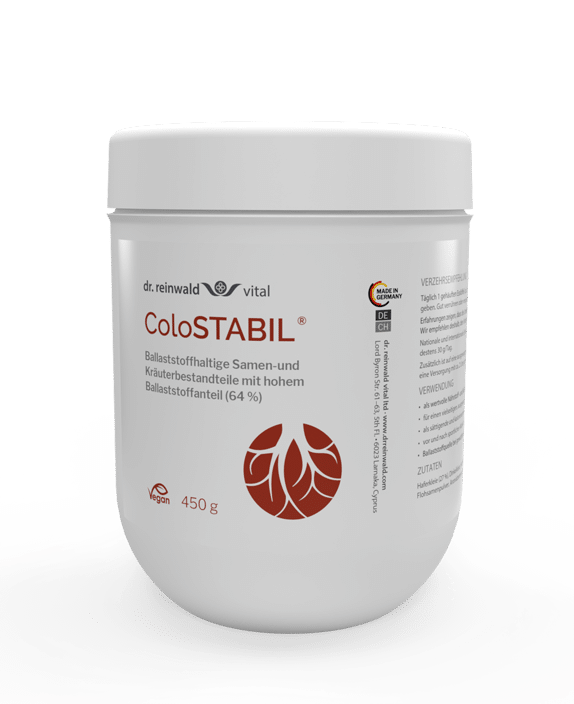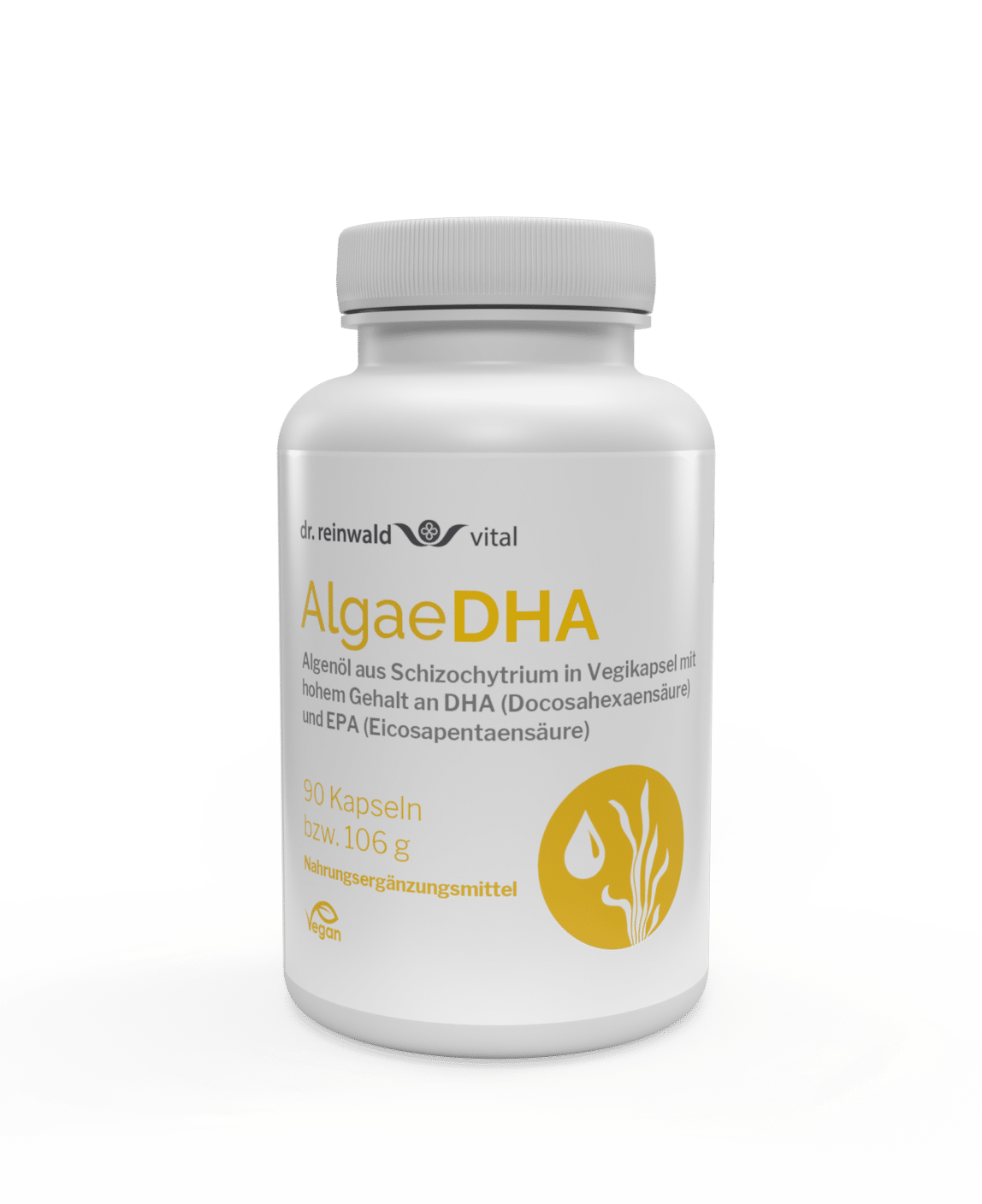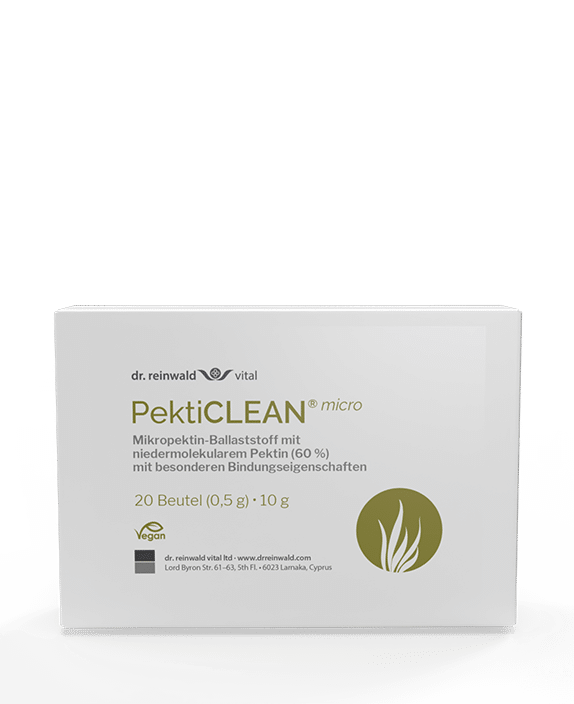Why are amino acids so important for our body?
Series of articles: Proteins – building blocks of our life
When it comes to proteins, most people immediately think of bodybuilding and muscle mass. What is misunderstood: Proteins, in the vernacular also called protein, are not only important for muscle building. None of us could live without proteins. Because: The proteins consisting of amino acids are the primary building material of our cells and thus involved in almost all vital processes in the body. That is why they are also called the building blocks of life. Power athletes have long recognized this and made use of it. It is not for nothing that the term protein is derived from the Greek word “proteios”, which means “in the first place”.
Proteins – the dramaturges among the macronutrients
Along with carbohydrates and fats, proteins are macronutrients. The macronutrients are basic building blocks of any food and provide our body with energy. Proteins account for about 15 to 17 percent of body mass in adults.
Proteins are the basic building blocks of all human cells. They provide the building material for our muscles, organs and blood, but also for hormones and enzymes. A particularly important function of proteins is to build new cells and repair existing cells. They also play a crucial role, controlled by our genetic code, in many vital processes, similar to small working robots. In addition, proteins are the basic building blocks of our immune defense cells. Proteins are even needed as reserve substances for energy supply in times of hunger. Whether in healing processes, in muscle building or in the renewal of our body cells – nothing works without protein.
Amino acids – basic building blocks of proteins
The smallest building blocks of proteins are the 21 so-called proteinogenic, i.e. protein-building, amino acids, which are controlled by our genetic code and are linked to form chains. The amino acids consist mainly of the elements carbon, hydrogen, oxygen, nitrogen and rarely also sulfur.
Nearly all the vital substances that our body needs are converted from these amino acids into peptides or proteins. Peptides are relatively short amino acid chains of up to about 100 amino acids in length. Amino acids are thus the actual building blocks of life, which are transported via the blood to those parts of the body – e.g. the skin, muscles, liver cells or enzymes – where they are then converted and incorporated into the body’s own protein.
The eight essential amino acids
Of these proteinogenic amino acids, eight are indispensable and thus essential for adult humans: isoleucine, leucine, lysine, methionine, phenylalanine, threonine, tryptophan and valine. Since the body cannot produce these eight essential amino acids itself, it is vital that we obtain them from our food. This is because they are the basic prerequisite for our body to be able to form the remaining amino acids. Under certain circumstances, e.g. in the growth phase or during convalescence, we may need to take in more amino acids through our food.
The specific amino acid profile of humans – Human Amino Acid Profile
More recently, researchers have discovered that every living being has its own very specific amino acid profile, the so-called “master profile” – including humans. This amino acid profile is a prerequisite for achieving maximum protein biosynthesis. Protein biosynthesis is one of the most central processes in our human body. In simple terms, it involves the formation of new proteins in our cells. The synthesizing of these new proteins takes place according to a plan that is laid down in our genetic information of the DNA.
Only if all eight essential amino acids are present at the same time and in exactly the right ratio to each other can our organism optimally build up the body’s own protein. The more the proportion and ratio of the eight essential amino acids deviate from the optimal amino acid profile, the lower the protein nutritional value or the so-called net amino acid utilization (NAV) of a protein food source. And the higher the proportion of metabolic waste.
There is a special feature of protein metabolism compared to carbohydrate and fat metabolism, in which only water and carbon dioxide are produced as excretion products: When amino acids are broken down, the individual components produce, among other things, nitrogen waste in the form of ammonia, which is toxic to our cells. This nitrogen waste must be cultivated in the liver via the so-called urea biosynthesis and converted into urea.
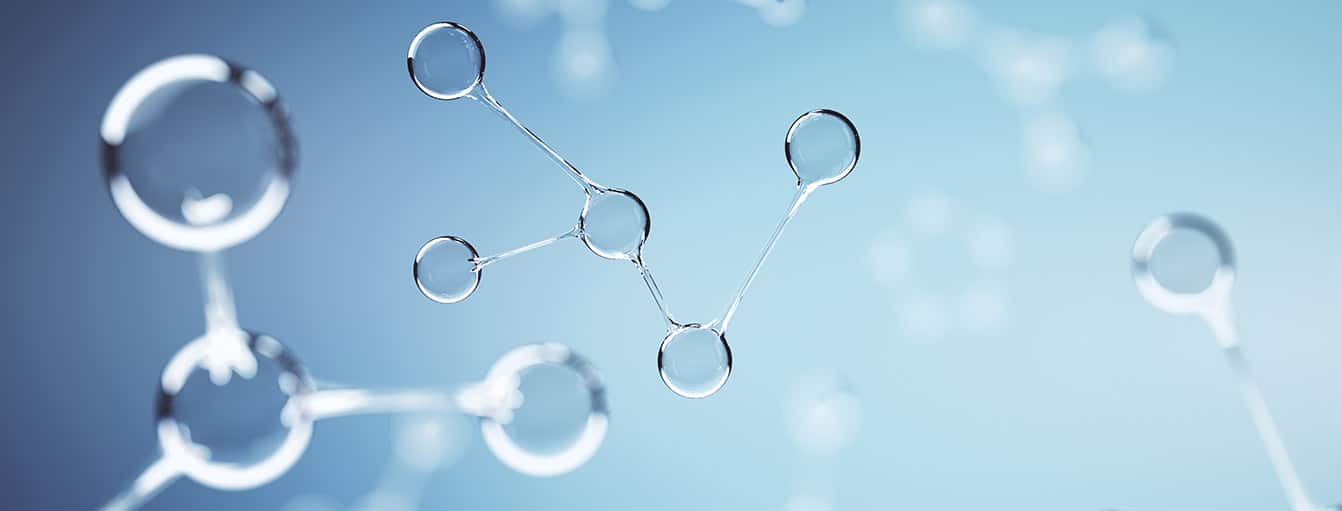
“There must be two if life is to be successful:
Proteins and Nucleic Acids.”
Arthur Kornburg on the occasion of his Nobel Prize award in 1959
How much protein does our body need per day?
Our modern diet, environmental pollution and our lifestyle, dominated by permanent stress and permanent overstimulation, do not always ensure that we take in and/or utilize all the vital amino acids, i.e. the eight essential amino acids, in sufficient quantities and in the right proportions.
In our therapeutic work, we repeatedly find that most people do not consume enough protein. However, since our body needs sufficient protein to maintain its functionality, a protein deficiency can affect our physical and mental well-being in many ways. This is because when there is an undersupply of protein, not only does our body substance suffer, i.e. bones, cartilage, muscles, nails, etc., but also our immune system, digestion and hormone system. We lose precious muscle mass and no longer have a good feeling of satiety. Fatigue, exhaustion, susceptibility to infections, digestive disorders, weight problems, poor wound healing and poor regenerative capacity are just a few of the possible consequences.
An adequate supply of high-quality proteins is therefore an important prerequisite for our health.
In addition, there are life situations that result in an increased protein requirement: elderly people, athletes, pregnant women, children in the growth phase, vegetarians and vegans, but also acutely or chronically ill people. An unbalanced diet can also lead to disturbances in protein metabolism.
Animal vs. vegetable protein
Our body does not have a protein store, so our body cells depend on a regular supply of protein. What many people do not know: It is not only the quantity, but also the quality of the proteins that is important.
The more the amino acid profile of a dietary protein resembles the body’s own amino acid profile in its composition, the more “valuable” the protein is and the easier it can be converted into the body’s own protein. This nutritional quality of a protein is also called “biological value”. And the higher the quality of a protein, the smaller the amount that needs to be ingested.
By way of comparison, an egg has a net breakdown value of 48 percent, while fish, meat and poultry have a net breakdown value of 28 to 36 percent. The lowest net breakdown value, and consequently the most toxic nitrogen waste, is found in plant proteins. Plant protein sources have a very low net yield with comparatively high waste. Therefore, the additional intake of a high-quality protein product is definitely necessary in a purely vegan diet. But also vegetarians and meat eaters we recommend the additional intake of high-quality proteins in addition to the diet.
MyAMINO® from dr. reinwald vital – the protein revolution
With MyAMINO® we have developed a worldwide unique protein product, with which you can supply your body with a high proportion of highly pure amino acids and almost without nitrogen loss (< 1%).
The special feature of MyAMINO®: The eight essential amino acids are in a very specific relation to each other. And this relation enables the highest protein nutritional value worldwide with an almost 99% net build-up value. That is, almost all amino acids can be used for protein synthesis and thus for cell formation (anabolic) of the body. The nitrogen provided in MyAMINO® is used for protein biosynthesis as a precursor, and does not go into degradation. Substitution of dietary protein by MyAMINO® thus relieves the kidneys and liver.
MyAMINO® also does not produce digestive end products in the intestines, which contributes to a relief of the digestive system and consequently also to a relief of the cardiovascular system.
In addition, MyAMINO® has almost no calories and provides your body with the same amount of actually usable amino acids as about 350g of meat, fish or poultry. Because: Proteins generally contribute to a higher feeling of satiety than carbohydrates.
This is the great advantage of MyAMINO®: Your body is relieved and at the same time sufficiently supplied with high-quality amino acids.
You have questions or want to know more? Our friendly team – consisting of therapists and alternative practitioners – will be happy to advise you on the subject of proteins, amino acids and MyAMINO®. Call now or use our chat.
